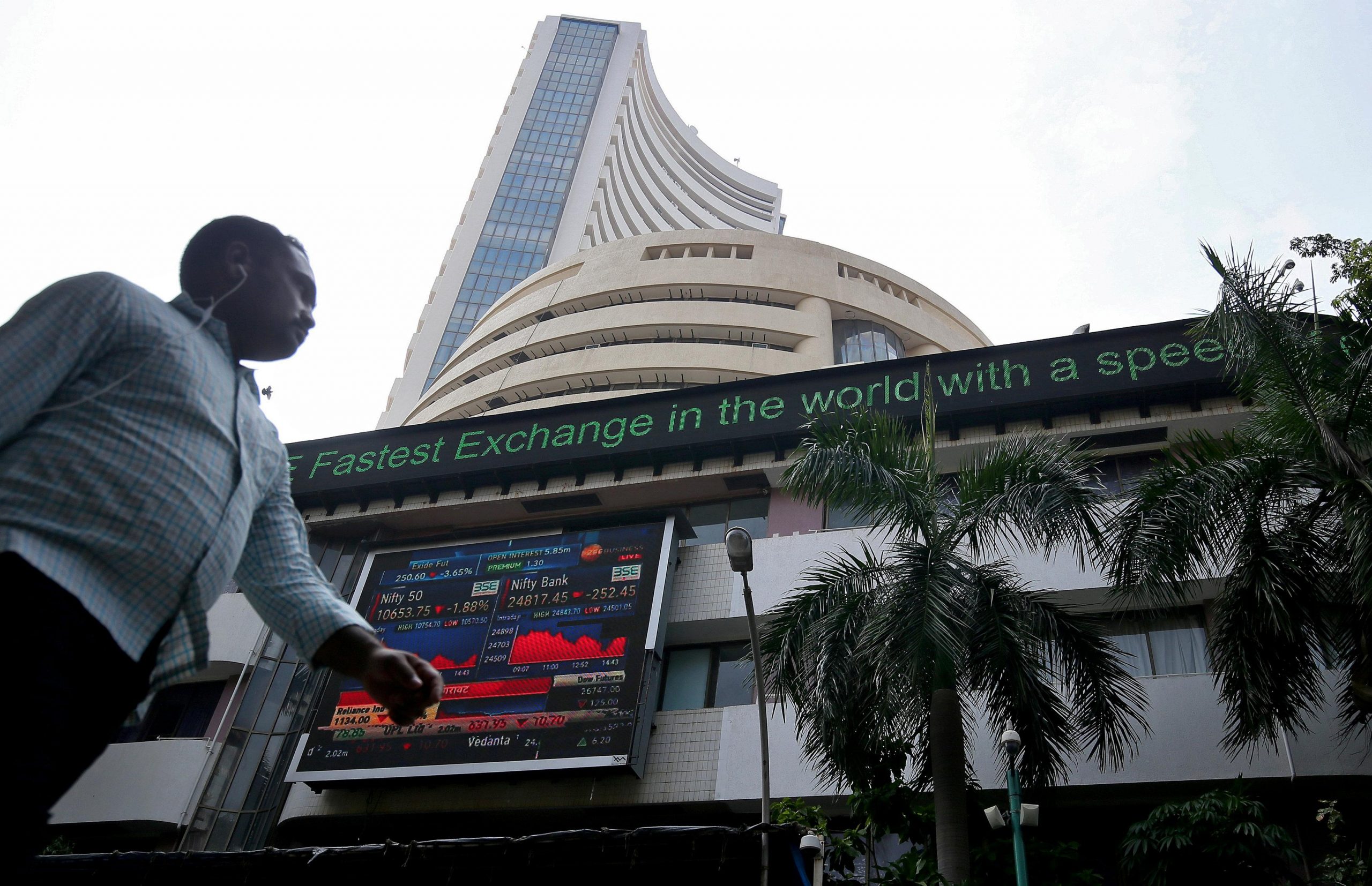The benchmark indices fell to their lowest level in four weeks as overseas investors intensified their selling amid a global risk-off sentiment.
A surge in US bond yields and spiralling oil prices dampened investors’ risk appetite. The Sensex fell 610.37 points, or 0.92 per cent, to settle at 65,508.32. During the day, it plunged 695.3 points, or 1.05 per cent, to 65,423.39. The Nifty declined 192.90 points, or 0.98 per cent, to end the session at 19,523.55. Both indices closed at their lowest level since September 1.
The 10-year US bond yield on Thursday was trading at 4.6 per cent, the highest since October 2007. Foreign portfolio investors (FPIs) pulled out Rs 3,364 crore. Foreign investor selling was, to an extent, offset by domestic institutional buyers, who bought shares worth Rs 2,711 crore. So far this month, FPIs have sold shares worth nearly Rs 18,000 crore, the most since January.
Overseas funds have stepped up selling pressure following the US Federal Reserve’s (Fed’s) indication that interest rates will stay higher for longer.
The Fed’s projections were much more hawkish than markets had priced in. The prospect of higher rates, rising crude oil prices, and erratic monsoons led to a 3.5 per cent pullback in domestic equities.
Brent crude prices have firmed up nearly 15 per cent in the past one month and are edging towards $100 a barrel. A drop in stockpiles at a major storage hub has fanned fears of falling supply.
“The expectation was that interest rates could fall in the US but could happen much quicker in Asia. With oil prices increasing, we could also see higher interest rates for longer scenarios. The Reserve Bank of India (RBI) has minimal legroom as vegetable prices have also risen. And they will probably be more hawkish. And we have seen downgrades to big firms of late,” said Andrew Holland, chief executive officer of Avendus Capital Strategies.
Meanwhile, Minneapolis Fed President Neel Kashkari on Thursday said the US central banks might have to do less with their monetary policy tools to tame inflation. A government shutdown and the auto strike may lead to a slowdown in the US economy.
From now on, investors will keenly track the second-quarter results, the US personal consumption expenditure data, and a few other macro numbers on Friday. The personal consumption data is considered the preferred inflation gauge of the Fed. There is also some nervousness in global markets as a huge options position held by JP Morgan & Chase is set to expire on Friday.
“We are likely to see strong results in the second quarter. In the overall markets, there is nothing to suggest that there is extraordinary froth. Overall, markets are well placed, given the solid economic activity in India. There are valuation concerns in the SME market, and bubbles have to build up in some parts of the small-cap ecosystem,” said Saurabh Mukherjea, founder of Marcellus Investment Managers.
The market breadth was weak, with 2,158 stocks declining on the BSE against 1,504 advances. Four-fifths of index stocks declined. Reliance Industries fell 1.5 per cent and contributed the most to the Sensex’s decline, followed by Infosys, which was down 1.9 per cent. In percentage terms, Tech Mahindra fell the most at 4.6 per cent, followed by Asian Paints, which declined nearly 4 per cent.
The India Vix index surged 11 per cent to 12.82. Nifty Midcap 100 and Nifty Smallcap 100 fell 1.3 per cent and 0.4 per cent, respectively.
Note:- (Not all news on the site expresses the point of view of the site, but we transmit this news automatically and translate it through programmatic technology on the site and not from a human editor. The content is auto-generated from a syndicated feed.))


